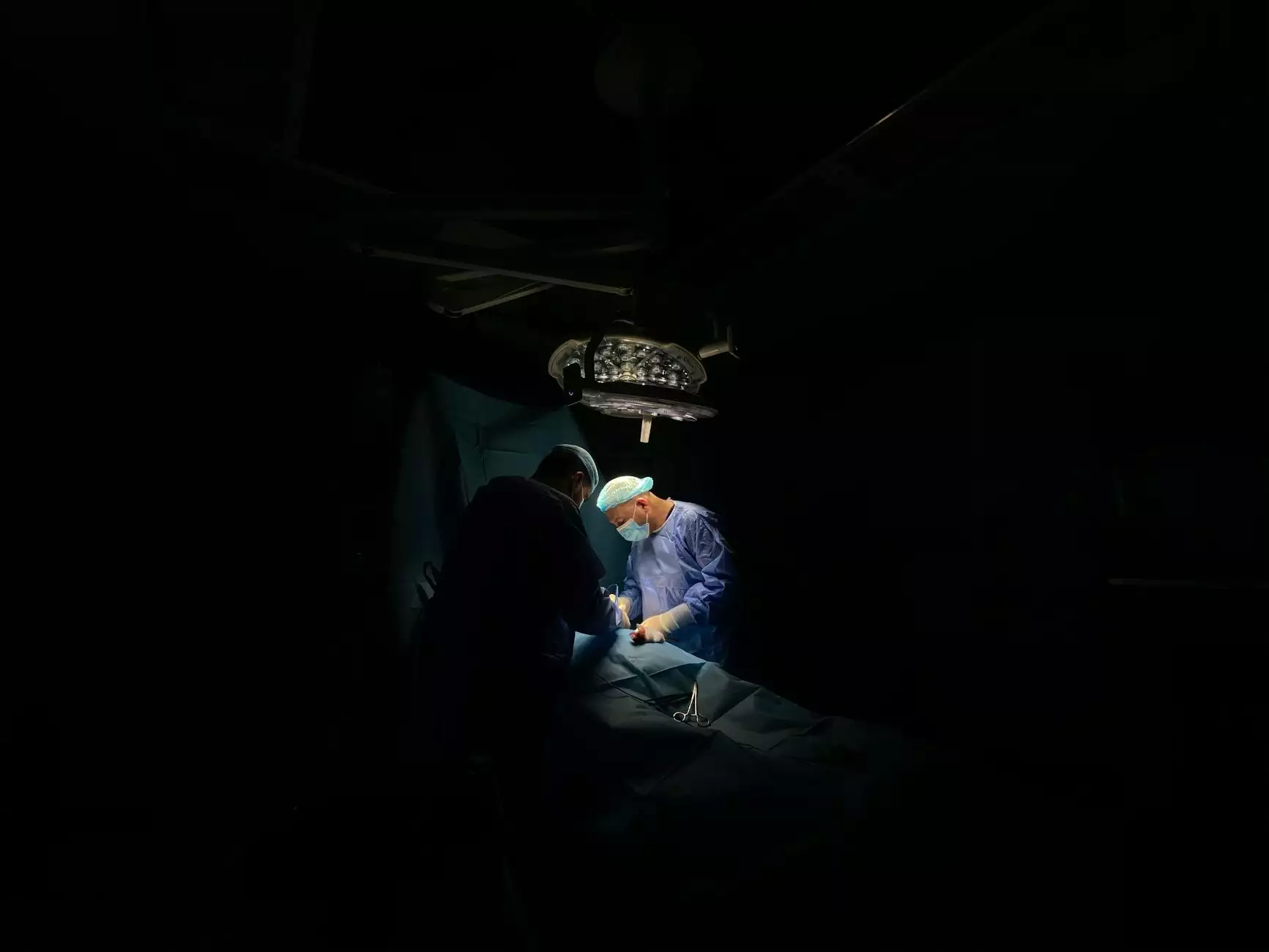Understanding Lung Operation Surgery

Lung operation surgery serves as a pivotal procedure aimed at treating various lung diseases and conditions. In this comprehensive article, we will delve deeply into the types of lung surgeries, the processes involved, potential risks, and what patients can expect during their recovery journey. Our goal is to provide in-depth knowledge to help patients and their families make informed decisions about lung health and surgical options.
What is Lung Operation Surgery?
Lung operation surgery encompasses various surgical procedures designed to treat diseases affecting the lungs, including cancer, infections, and other respiratory conditions. These surgical interventions may involve removing part or all of a lung (pulmonary resection), performing a lung transplant, or correcting structural abnormalities. Understanding the purpose and types of lung surgeries is crucial for patients facing such decisions.
Types of Lung Operation Surgery
1. Lung Resection
Lung resection, commonly referred to as lobectomy or pneumonectomy, involves the removal of a portion or the entirety of a lung. The primary objective of this surgery is to eliminate diseased lung tissue, often due to cancer or severe infections. The types of lung resection include:
- Lobectomy: Removal of a lobe of the lung.
- Pneumonectomy: Complete removal of one lung.
- Sectorectomy: Removal of a small section of the lung.
2. Lung Transplantation
A lung transplant is a surgical procedure where a diseased lung is replaced with a healthy lung from a donor. This surgery is considered for patients with end-stage lung disease, such as chronic obstructive pulmonary disease (COPD) and idiopathic pulmonary fibrosis. It is a life-saving procedure, but it requires careful evaluation and a rigorous post-operative care plan.
3. Video-Assisted Thoracoscopic Surgery (VATS)
Video-Assisted Thoracoscopic Surgery (VATS) is a minimally invasive surgical technique that uses a small camera to guide the surgeon. VATS allows for the removal of lung tissue or treatment of other thoracic conditions with limited incisions, leading to reduced recovery time and minimal scarring.
Indications for Lung Operation Surgery
Understanding when lung operation surgery is necessary is essential for patients facing respiratory difficulties. Common indications for surgery include:
- Diagnosis of Lung Cancer: Surgery may be the best option for localized tumors.
- Severe Lung Infections: Abscesses or chronic infections may require surgical intervention.
- Chronic Obstructive Pulmonary Disease (COPD): In severe cases, lung reduction surgery may improve breathing.
- Interstitial Lung Diseases: Conditions like pulmonary fibrosis can necessitate a lung transplant.
The Lung Surgery Procedure: What to Expect
Preoperative Preparation
Before undergoing any lung operation surgery, patients must go through a comprehensive evaluation that may include:
- Physical examination and health history assessment.
- Imaging tests, such as CT scans or chest X-rays.
- Pulmonary function tests to evaluate lung capacity.
- Consultations with a pulmonologist and an anesthesiologist.
During the Surgery
The actual procedure will vary based on the type of surgery performed. Typically, lung surgery is done under general anesthesia to ensure that the patient is completely relaxed and pain-free. The surgical steps generally include:
- Anesthesia Administration: Ensuring the patient's comfort throughout the procedure.
- Incision: Depending on the type of surgery, the surgeon will make an incision in the chest wall.
- Accessing the Lung: The surgeon carefully moves surrounding tissues to access the lung.
- Surgical Intervention: The specific surgical actions (resection, transplantation, etc.) are performed.
- Closure: The incision is closed and sutured, with possible drainage tubes placed to manage fluids.
Risks and Complications
Like any major surgery, lung operation surgery carries risks. While advancements in medical technology have minimized complications, it is essential to be aware of potential issues including:
- Infection: Post-operative infections can occur at the incision site or internally.
- Bleeding: Excessive bleeding may require further intervention.
- Pneumothorax: Collapsed lung occurs when air leaks into the space between the lung and chest wall.
- Respiratory Issues: Post-operative respiratory distress may arise, especially in patients with pre-existing conditions.
Recovery After Lung Operation Surgery
The recovery process following lung operation surgery is critical and varies based on the extent of surgery performed:
Initial Recovery
Post-operative care typically involves:
- Monitoring in a recovery unit to manage pain and vital signs.
- Placement of drainage tubes to prevent fluid accumulation.
- Gradual mobilization to promote lung function and prevent complications.
Rehabilitation
Pulmonary rehabilitation is often a recommended part of recovery, including exercises aimed at improving lung capacity and overall physical health. Engaging in rehabilitation significantly boosts the recovery process by:
- Enhancing stamina and physical endurance.
- Improving lung function through breathing exercises.
- Providing nutritional guidance to support healing.
- Fostering psychological support through counseling sessions.
Long-Term Outlook Following Lung Surgery
The long-term outcome following lung operation surgery highly depends on the underlying condition, the type of surgery, and the patient’s overall health. Some positive factors include:
- Increased Quality of Life: Many patients experience relief from symptoms, leading to improved well-being.
- Improved Breathing Function: Surgical intervention may restore significant lung function.
- Potential for Cure: In early-stage lung cancers, surgery offers a chance for cure and extended survival.
Conclusion
In conclusion, understanding the intricacies of lung operation surgery prepares patients and their families for the challenges and triumphs of such a journey. Knowledge of the types of surgeries, the procedures involved, risks, and recovery empowers individuals to make informed decisions about their lung health. At Neumark Surgery, we are committed to providing exceptional care and support for all patients facing lung-related conditions, offering a pathway to better health and improved quality of life.
lungs operation surgery


